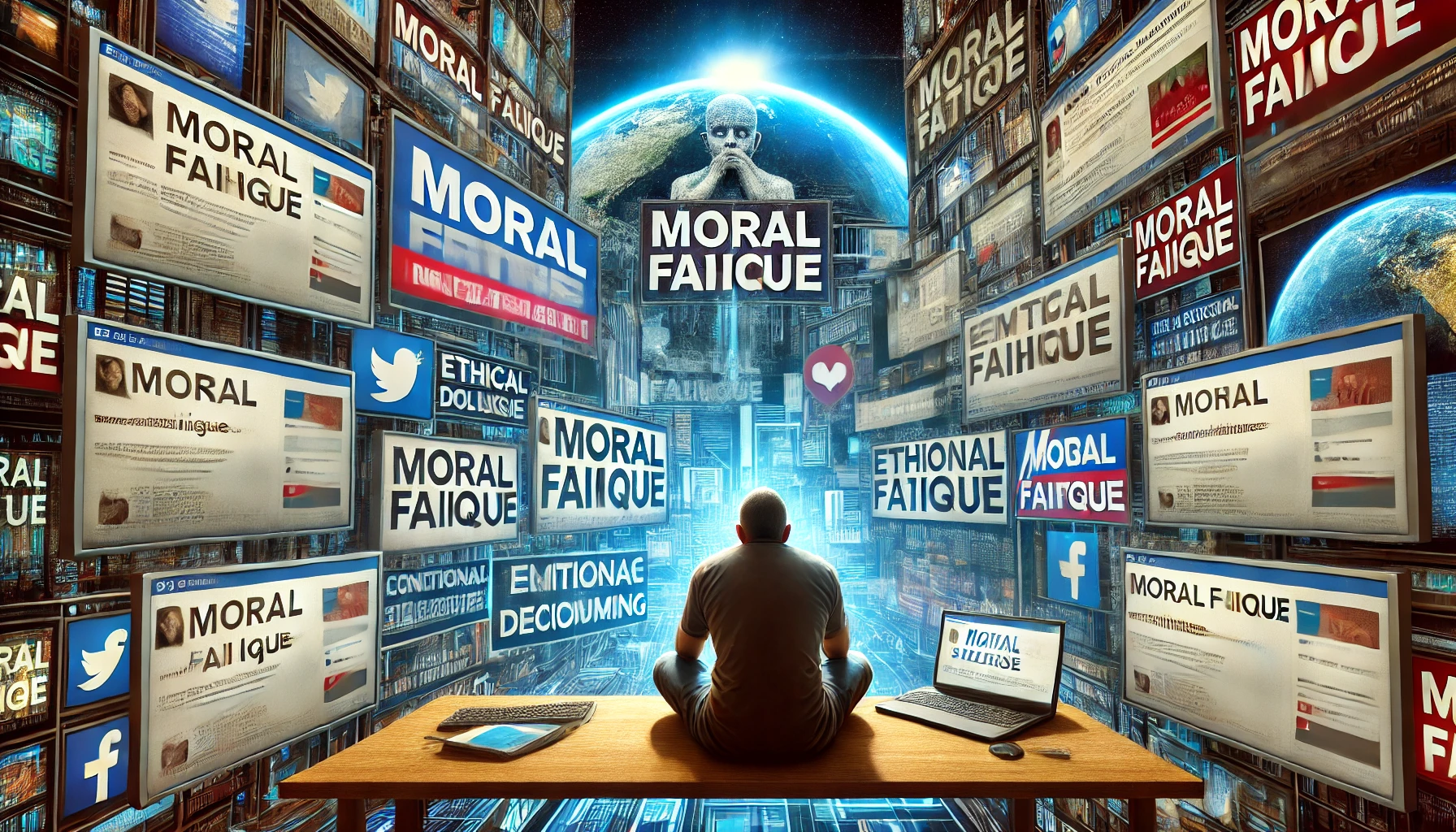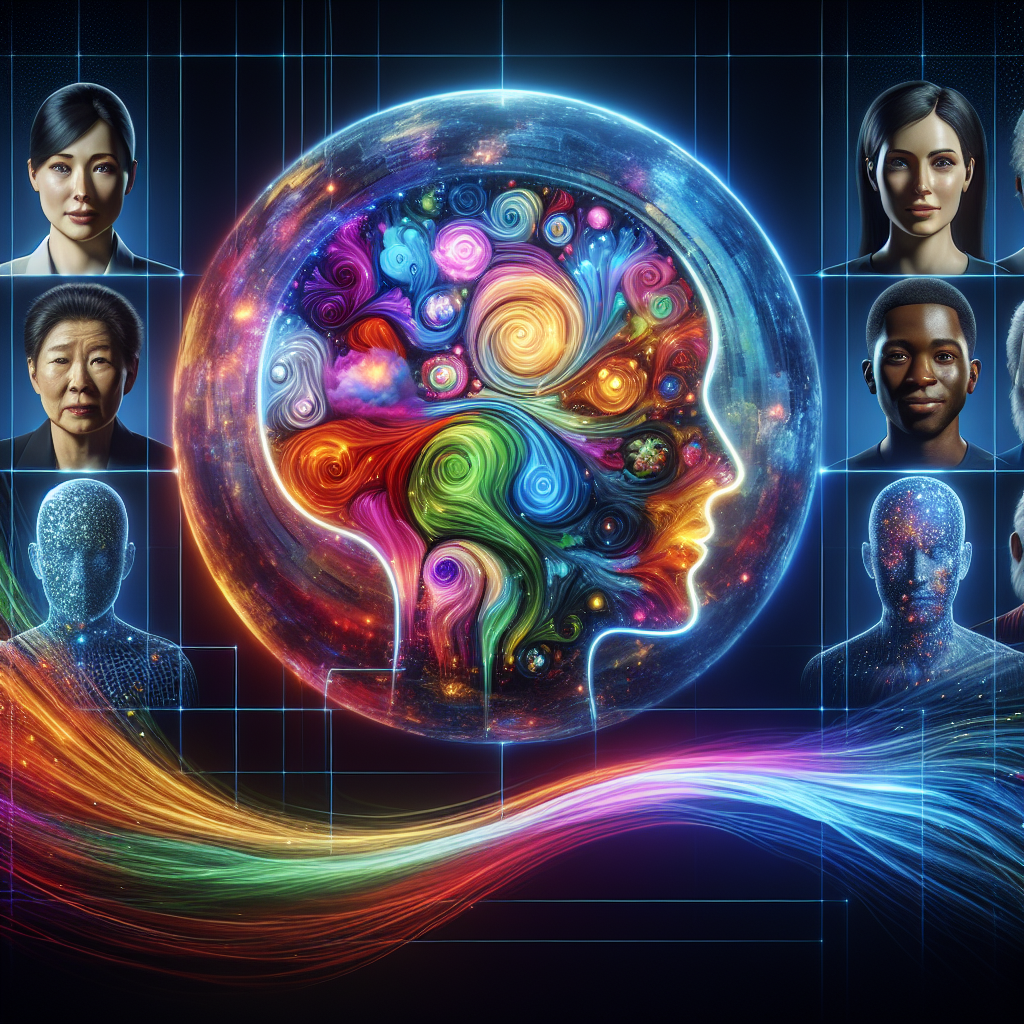Moral Fatigue in the Digital Age: How Constant Ethical Dilemmas Wear Us Down. In an era where digital engagement is nearly unavoidable, we are constantly bombarded with ethical questions and moral dilemmas. From political debates to corporate scandals, climate crises, and social justice issues, the internet has transformed everyone into an active participant in global discussions. While staying informed is essential, the psychological toll of engaging with these debates—often on a daily basis—can be overwhelming. This phenomenon, known as moral fatigue, is increasingly affecting people’s emotional well-being, leading to stress, disengagement, and even ethical paralysis. In this article, we’ll explore the causes of moral fatigue, its psychological impact, and strategies to maintain mental resilience in a hyper-connected world.
What Is Moral Fatigue?
Moral fatigue refers to the exhaustion that results from constantly confronting ethical dilemmas, particularly in digital spaces. Unlike physical exhaustion, which stems from exertion, moral fatigue is a cognitive and emotional drain caused by the need to repeatedly engage in ethical decision-making. This can manifest as anxiety, irritability, mental exhaustion, and even feelings of helplessness. With social media amplifying controversies 24/7, individuals are increasingly exposed to discussions that require them to take a stance, leading to decision fatigue and, in some cases, withdrawal from ethical discourse altogether.
How Digital Culture Fuels Moral Fatigue
1. The Never-Ending News Cycle
Traditional media cycles used to allow for periods of disengagement. However, digital platforms have created an environment where news updates are constant. Every day, there is a new crisis, controversy, or ethical debate demanding attention. Whether it’s corporate misbehavior, political scandals, or human rights violations, individuals are pressured to stay informed and take action. Over time, this unrelenting exposure can lead to exhaustion.
2. Social Media Outrage and the Pressure to Respond
Platforms like Twitter and Reddit thrive on controversy, and users often feel compelled to engage in ethical debates. Whether it’s calling out bad behavior or supporting a cause, individuals are expected to have an opinion on everything. This pressure to “pick a side” can be draining, especially when the debates are complex and emotionally charged.
3. Ethical Consumption Anxiety
From the clothes we wear to the food we eat and the technology we use, nearly every purchase now carries an ethical dimension. Are your clothes sustainably made? Is your smartphone produced ethically? Are your groceries sourced from companies with responsible labor practices? While consumer awareness is crucial, constantly navigating these ethical dilemmas can lead to decision fatigue and guilt.
4. The “Cancel Culture” Phenomenon
Cancel culture has heightened the stakes of online engagement. People worry that a single misstep—liking the wrong post, following the wrong person, or making an uninformed comment—could lead to backlash. This results in heightened self-censorship, anxiety, and avoidance of important discussions altogether.
5. Information Overload and Misinformation
Not only is there too much information to process, but much of it is misleading or outright false. Sifting through misinformation, fact-checking sources, and critically analyzing every claim adds another layer of cognitive strain, exacerbating moral fatigue.
The Psychological Effects of Moral Fatigue
1. Ethical Paralysis
One of the most significant effects of moral fatigue is ethical paralysis—the inability to make decisions or take action due to overwhelming moral considerations. Individuals may start avoiding discussions about social issues, opting for apathy over the exhaustion of constant engagement.
2. Chronic Stress and Anxiety
The constant confrontation with ethical dilemmas can lead to increased stress and anxiety. Feeling responsible for addressing every injustice in the world creates an emotional burden that can affect mental health.
3. Desensitization and Apathy
Ironically, moral fatigue can lead to the opposite of its intended effect: desensitization. When people are exposed to too many crises, their emotional response may diminish, making them less likely to engage with important issues.
4. Social Withdrawal
Some individuals may start withdrawing from online discussions, limiting their social interactions to avoid conflict. This can lead to isolation, which negatively impacts mental well-being.
How to Cope with Moral Fatigue
1. Curate Your Information Intake
Not every issue requires immediate attention. Be intentional about the news you consume and limit your exposure to constant updates. Following trusted sources and avoiding doomscrolling can help reduce the psychological burden.
2. Set Digital Boundaries
Establish limits on social media engagement. Designate time for checking news and discussing ethical issues, but also set boundaries to allow mental recovery. A digital detox, even for a few hours a day, can help restore balance.
3. Focus on Meaningful Action
Instead of engaging in every online debate, focus on actions that have tangible impact. Volunteering, donating to causes, or advocating in real life can be more fulfilling than endless online discourse.
4. Accept That You Can’t Fix Everything
One of the hardest lessons to learn is that no individual can solve every global problem. Prioritize issues that matter most to you, and recognize that disengagement from certain topics is not a moral failure, but a necessity for mental health.
5. Engage in Offline Reflection
Journaling, meditation, or discussing ethical concerns with close friends can help process moral dilemmas without the intensity of public online discussions.
Conclusion
Moral fatigue is an unintended consequence of the digital age, where constant exposure to ethical debates has become the norm. While it’s essential to stay informed and engaged, the psychological toll of endless moral decision-making can lead to exhaustion, anxiety, and disengagement. By setting boundaries, prioritizing meaningful action, and managing digital exposure, individuals can navigate ethical discussions in a healthier, more sustainable way. The goal is not to disconnect entirely but to engage in a way that preserves both personal well-being and societal impact.
For further insights into managing digital stress, explore The Psychology of Digital Decision Fatigue.





Leave a Reply